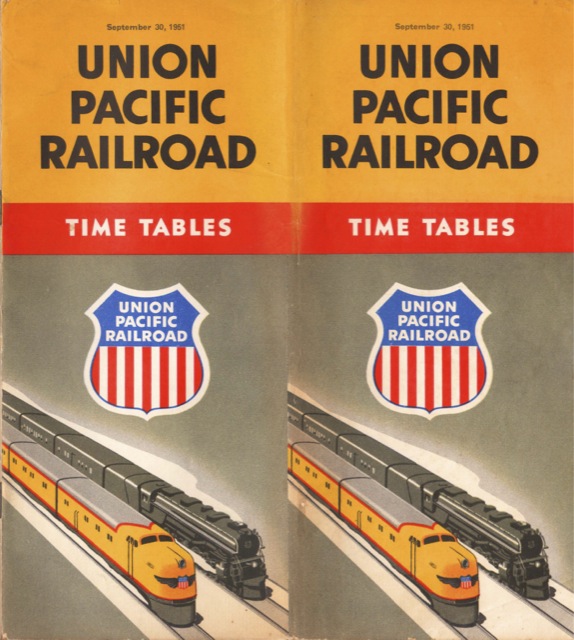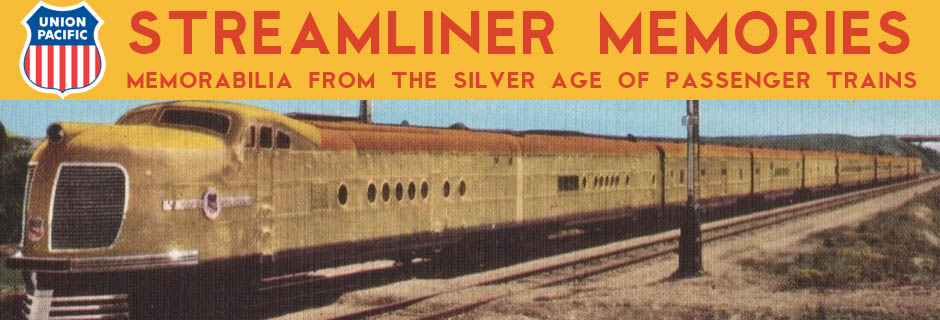All the streamliners were in daily service by the time this timetable was issued. The City of Los Angeles, facing stiff competition from the Super Chief, was still on a 39-3/4-hour schedule, but the City of Portland was 40 hours and the City of San Francisco was 40-1/4 hours. No doubt due to replacement of steam with Diesels, the Los Angeles Limited and San Francisco Overland Limited now made their trips in 48-2/3 hours. Portland didn’t get a similar train; the Portland Rose was combined with the Gold Coast, which also had sections to San Francisco and Los Angeles and which still required more than 60 hours to get from Chicago to the Pacific Coast.

Click image to download a 33.3-MB PDF of this 52-page timetable.
Where the 1937 timetables listed 14 westbound trains out of Omaha, this one only has eleven: the cities of San Francisco, Portland, Los Angeles, and Denver, the Los Angeles Limited, San Francisco Overland Limited, Gold Coast/Portland Rose, Idahoan, a National Parks special, a mail/express train, and a railcar. But the fact that the three streamliners to the coast are now daily mostly makes up for the loss of the Pacific Limited, Los Angeles and San Francisco Challengers, and five-times-monthly Forty-Niner. The National Parks special apparently replaced the Columbine as the secondary Chicago-Denver train.
